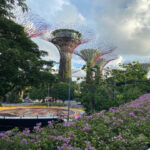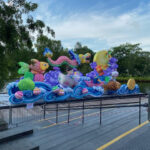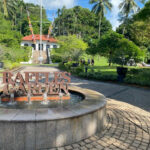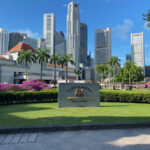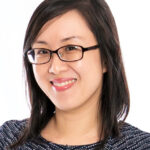The Exchange Program Offers an International, Educational Opportunity
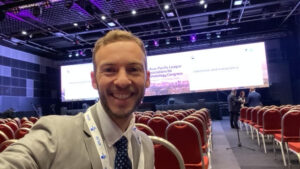
Dr. Liebowitz attending a talk by May Ching Soh, MBChB, FRACP, head of the Department of Obstetric Medicine, Te Whatu Ora Counties Manukau, University of Auckland, New Zealand, on the topic of practical tips for the rheumatologist dealing with pregnant patients.
SINGAPORE—This summer, Jason Liebowitz, MD, assistant professor of medicine in the Division of Rheumatology at Columbia University Vagelos College of Physicians and Surgeons, New York, was among those selected by the ACR in its Research Exchange Program to travel to Singapore for the 2024 Congress of the Asian-Pacific League of Associations for Rheumatology (APLAR).
The ACR’s Research Exchange Program is designed to promote the international exchange of clinical and research skills, expertise and knowledge within rheumatology, as well as create opportunities for collaboration. It provides accepted applicants with the chance to attend EULAR and APLAR meetings, exposing them to exciting research by colleagues from around the world and creating opportunities for collaboration.
“I felt participating in the ACR/APLAR Research Exchange would be a wonderful opportunity to be exposed to leading rheumatology research and education in the Asia-Pacific region, develop relationships with medical educators in Singapore and elsewhere in Asia, and to see a part of the world that I had not been to before,” says Dr. Liebowitz. “It was a tremendous honor to be selected.”
The Exchange Program is designed for junior academic rheumatologists and rheumatology health professionals who are interested or engaged in rheumatology research.
The Experience
Travel, education, connection—Dr. Liebowitz regards “the Exchange Program as one of the best opportunities for rheumatologists and medical researchers/educators around the globe to get to know one another. It is a unique opportunity to be exposed to research, education and culture.”
In Singapore, Dr. Liebowitz saw the advanced healthcare system of the country and learned about the challenges and opportunities faced by rheumatologists in the Asia-Pacific region of the world.
-
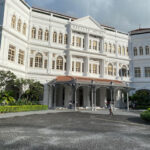
- Raffles Singapore is a historic luxury hotel in Singapore that was established in 1887. The hotel was named after British statesman Sir Thomas Stamford Raffles, the founder of modern Singapore.
“I learned about specific treatment algorithms for [anti-melanoma differentiation-associated gene 5 (MDA-5) positive dermatomyositis], which is more common and severe in this part of the world, gained an understanding of the degree to which osteoporosis has grown and will continue to grow as a major issue in Asia,” he says
Dr. Liebowitz also had time to make new connections. “I was able to meet and socialize with colleagues from Asia, Europe and elsewhere, and grow my professional network,” he says.

